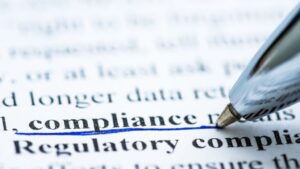There are many ways to avoid reputational harm. The non-compliance with regulatory requirements results in big financial losses, considerable regulatory punishment, reputation damage, and even the closure of companies like Enron. Therefore, a systemic approach to preventing, detecting, and resolving corporate compliance irregularities within an organization is necessary. The corporate compliance function in the organization creates programs that effectively prevent, detect and remove/resolve non-compliance events.
Non-compliance with applicable laws and regulations poses a significant risk to the organization’s reputation. In this case, the management creates a crisis communication and management strategy to avoid reputational losses. The crisis communication team comprises senior management personnel, including the Chief Communication Officer. In case of any such event that may lead to reputational losses, the senior management personnel contacts stakeholders and media to ensure that damages to the company’s brand are avoided by providing relevant and fair information.
Avoiding Reputational Harm: The Communication Officer
The Communication Officer makes decisions in the event of regulatory non-compliances that may lead to reputational losses. At the same time, the CEO advises the management concerning compliance, action in cases of identified irregularities, defining corrective action, education, communication with the public in case of reputation risk, etc. The CEO’s role is to provide all relevant information for decision-making to management, including risk assessment in the case of certain decisions. Still, the final decision is always made by management.
In case of reputational losses, the compliance officers provide regulatory requirements and compliance status information to the communication officer before appearing to the media or contacting the stakeholders. Therefore, to deal with the situation that may lead to reputational losses, the management team works in collaboration to share relevant and transparent facts and information to save the brand image.
Reputational loss incidents are viewed negatively by the general public and harm the company’s brand name. The management determines and implements adequate and transparent communication standards to address such issues and maintain the ethical tone in all corporate communications. The Board’s most important responsibility is selecting and appointing a Communication Officer, who may be the CEO, to work as the gatekeeper of the company’s reputation.
Regulatory requirements require companies to promote a comprehensive system of ethics and a culture of integrity, which promotes effective corporate governance and investor stewardship standards through its principles. Finally, the Committee of Sponsoring Organizations or the COSO promotes ethics culture as an integral part of a comprehensive framework for reputation risk management.
At present, almost every big business in Ukraine, both international and national, tries to manage the risks associated with situations of a conflict of interests because the owners and management are well aware of the consequences of risks which may be the deterioration of the financial and reputational losses.
Avoiding Reputational Harm: Corporate Compliance Violations
Corporate compliance violations pose a potential reputational risk that may lead to negative consequences for the activity of a company. Such risks may call for decisions to terminate the relationships with such stakeholders. After that, it may cause corporate non-compliance to occur or terminate employees who do not follow the corporate compliance requirements and cause the imposition of penalties or significant reputational damages.
Banks that offer private banking services are exposed to reputational risk and should apply enhanced due diligence to such operations. Private banking accounts, which involve a considerable measure of confidentiality, can be opened in the name of an individual, a commercial business, a trust, an intermediary, or a personalized investment company.
The reputational risk may arise in each case if the bank does not diligently follow established KYC procedures. Suppose no legal prohibition on an economic transaction is discovered, but the answer to at least one of the put corporate compliance questions is positive. In that case, such a transaction will still be risky regarding business reputation. In this case, where there can be a negative impact on reputation, the management will have to compare the potential profits from such a transaction and the potential losses.
While conducting legal compliance, the problems in the company may arise not only because of unscrupulous counterparties but also because of employees, which often leads to litigations and jeopardizes the company’s reputation.
Final Thoughts
Reputational risk is critical because it can have an immediate and severe impact on your business. Ruined reputations drive away current and potential customers, reduce revenue and profits, drive employees away, and sow distrust among your company’s stakeholders. Furthermore, recovering from reputational risk can be difficult because the internet makes past incidents easily accessible even years later.
The consequences of reputational risk are not always obvious or immediate. Minor incidents can build up over time and explode when a pattern of misbehavior emerges. As a result, tracking and managing reputation risk as much as possible is extremely valuable.


